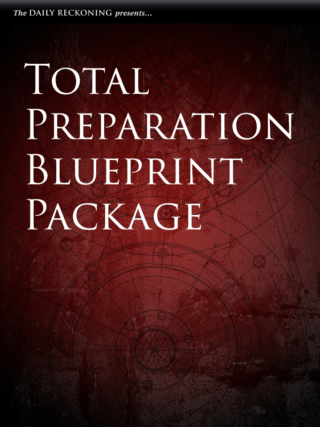“Don’t Fight the Narrative”
It’s widely believed that the stock market looks ahead and discounts the future. But consider this November’s presidential election…
Joe Biden has a substantial lead over President Trump in the polls. But Biden’s platform is not what you would call market friendly. For example, it calls for a 39.6% tax rate on dividends and capital gains.
But the stock market is near all-time highs again, with the Dow Jones Industrial Average nearing 27,000, the S&P over 3,200 and the Nasdaq actually at record
highs.
What more proof do you need that stock markets are clueless when it comes to discounting future outcomes?
Now, it’s true you can’t always trust the polls. I know it well since I was one of very few analysts who predicted a Trump victory in 2016, even though he was behind in the polls.
But the same analytical tools that led me to predict a Trump win last time are showing me his chances are poorer this time.
OK, a true believer might say, but maybe the market’s anticipating a robust economic recovery. That’s why it’s rebounded so strongly.
But that argument just doesn’t hold much water.
Yes, unemployment dropped from over 13% to just over 11% last month, but that’s still the highest level since the end of World War II.
And there’s good reason to believe the unemployment rate will surge again heading into August as Payroll Protection Plan loans run out, lockdowns resume and states catch up with a backlog of claims that have not been processed yet.
Big business may be doing fine because it’s crowded into technology, finance and telecommunications, which are relatively unaffected by the pandemic.
But almost half the economy and half of all jobs are the domain of small-and-medium sized enterprises that have been decimated.
These restaurants, salons, dry cleaners, boutiques and other mainstays of neighborhoods across America are operating at half-capacity (at best) or have shut their doors permanently (at worst).
Meanwhile, a wave of bankruptcies is sweeping across the nation.
In other words, the V-shaped recovery that many analysts have been touting simply isn’t in the cards.
My own estimate is that this year may be even worse than the Great Depression.
Total Preparation Blueprint Package
Love him or hate him, President Donald Trump has a huge problem on his hands. While it is not his fault, one massive event could trigger an immediate halt to governance. The turmoil would be a horrendous blow to the full faith and credit of the United States government and cause blowback creating prolonged government shutdowns throughout the year. This package will equip you with analysis and insights from our Wall Street and Washington insiders that can be found nowhere else like this. The next big call is in, be informed and prepared before it's too late. Sign up for The Daily Reckoning e-letter today and receive this FREE report.
By submitting your email address, you will receive a free subscription to The Daily Reckoning and carefully selected products and services that we think might interest you. You can unsubscribe at anytime. Privacy Policy.
We’re probably in for an L-shaped recovery, where the economy goes down steeply and is followed by low growth for an indefinite period of time.
But it’s full speed ahead for the stock market.
The market dip in March was the shortest bear market in history. Someone who just looked at stock charts could not be blamed for believing that the pandemic had never really happened.
So, why the strong stock market in a weak economy?
The simplest answer is that the stock market doesn’t have much to do with the economy. It’s just a casino driven by fear, greed, momentum, robots and indexation. There’s certainly something to that.
A more sophisticated answer is given by Nobel Prize-winning economist Robert Shiller.
Shiller writes that stock markets are driven by “narratives” or stories market participants tell each other.
From January to mid-February, even as the coronavirus was spreading out of control, the narrative was that the virus was contained to China. Markets reached new highs.
In March and April, the narrative changed to panic as Italy shut down and the U.S. did likewise. This is when the market fell over 30% ending the record bull market of 2009-2019.
The third phase started in late April as the market rallied 40% based on massive Fed money printing and $5 trillion of new government spending. The narrative was that easy money would rescue the market.
All of these narratives were wrong in the sense that the virus was not under control in February, it did not necessitate a lockdown in April, and the money printing and spending won’t solve the problem today.
Still, the narratives prevailed. “Don’t fight the Fed” is one of the oldest sayings on Wall Street.
The new conventional wisdom might be, “Don’t fight the narrative.”
Regards,
Jim Rickards
for The Daily Reckoning
for The Daily Reckoning

Another Saying is: Don't count you chickens! Don't assume anything, get off your butt and go out to the polls and vote.
ReplyDeleteThe polls were wrong in 2016 about Trump and he won. 99% of the polls are severely biased and inaccurate.
ReplyDeleteVote REPUBLICAN and save the nation from tyranny....
ReplyDeleteOnly God knows the winner, in advance. (@_@)
ReplyDelete